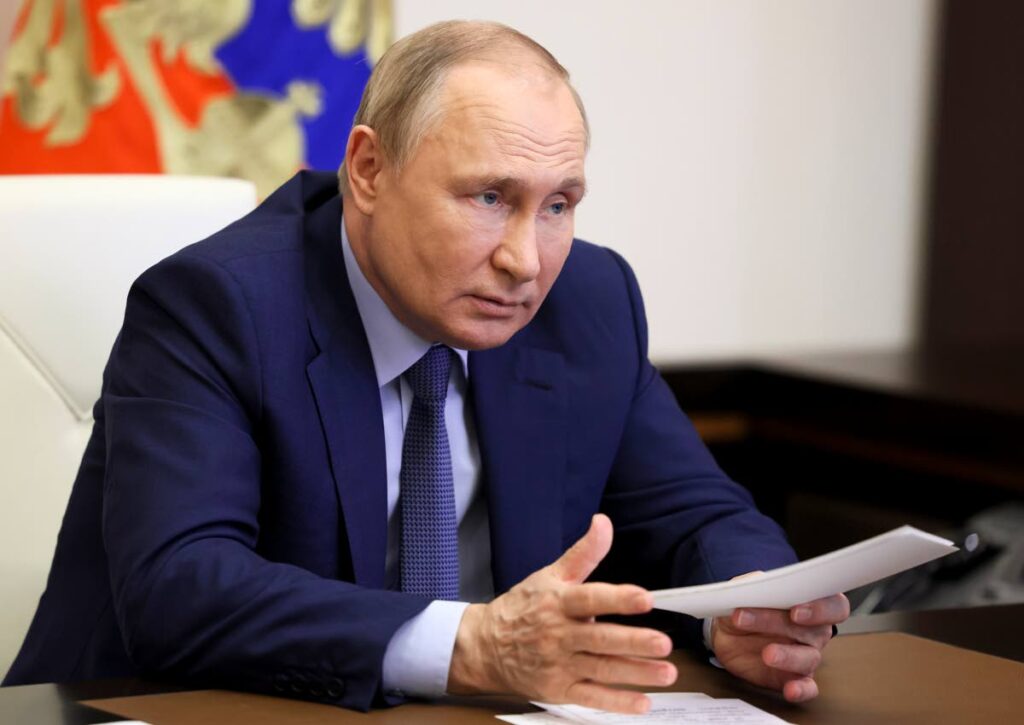A clear manifestation of international challenges

Joint statement by the EU Delegation and five EU member states*
JUNE 3 marked the 100th day of the war in Ukraine. Russia’s unprovoked war against Ukraine is a horror for Ukraine and its people. It has killed tens of thousands of civilians, traumatised millions and reduced entire cities to rubble. This devastating human rights and humanitarian crisis has resulted in the exile of more than 6.5 million Ukrainians abroad and the displacement of an additional 7.7 million people within Ukraine.
The flagrant breach of the United Nations Charter also endangers the entire rules-based international order. Threats to the territorial integrity and independence of any state are a threat to us all. We have a common responsibility to maintain peace and stability and a safe and sustainable world, and to react to the massive and blatant violations of human rights, international humanitarian law, and to the allegations of crimes in Ukraine falling under the jurisdiction of the ICC on a daily basis.
Nations around the world stand united in condemning Russia’s invasion and expressing solidarity with the Ukrainian people. Three UN General Assembly resolutions, adopted with the overwhelming support of the UN’s member states, have shown that international law and the multilateral rules-based order matter, and that attacks against the territorial integrity or political independence of any state will not be tolerated.
The Kremlin is also conducting a systematic disinformation campaign to falsify reality and hide the extent of its abuses, both internationally and among its own population by cutting them off from access to free and independent information. The only authorised media in Russia are at the service of the government and are used by Moscow as weapons of war and mind manipulation.
However, there is another dimension to Putin’s war that affects people in all parts of the world. Every day it becomes more obvious that it is also aggravating the world's economy, as well as food and energy security. Countries that have been struggling to recover from the covid19 pandemic now face further challenges to food and nutrition security, energy, commodity prices and public finances.
Contrary to Russia’s disinformation, these impacts are not due to the international sanctions targeting the Russian government and Russia’s financial sector and economic elites to reduce the Kremlin’s ability to finance the unjustified aggression.
These impacts are the responsibility of Russia, and wholly avoidable. This is a man-made crisis and the name of the man is Putin. His threats and actions prove that he is using food (like energy) as a geopolitical weapon – disregarding the lives and well-being of people – in Russia, Ukraine, anywhere. Dmitry Medvedev, the deputy chairman of Russia’s Security Council and ex-president of Russia, has said and thereby admitted that food exports are his country’s “silent weapon.”
The Russian military is deliberately targeting the Ukrainian agricultural sector. It is estimated that 49 per cent of winter wheat, 38 per cent of rye and 63 per cent of corn, to be harvested this summer, are situated in zones that are at risk. Between 20 per cent and 30 per cent of the areas under winter cereal, maize and sunflower seed production in Ukraine will either remain unharvested or not be planted this spring.
When Russia bombs Ukrainian fields, destroys and loots food storage depots and when Russian warships block Black Sea trade routes, it not only affects Ukrainian wheat and grain exports – it also directly negatively impacts the daily lives of the most vulnerable people in Africa, Asia and worldwide.
Approximately 70 countries (1.2 billion people), and not only those directly dependent on food and fertiliser imports from Ukraine and Russia, were already significantly exposed to rising food prices, rising energy prices, and tightening finances. Price shocks will have an impact worldwide, especially on the poorest households for whom food and fuel are a higher proportion of expenses. This could be a killer blow for fragile countries, and a source of social unrest and further instability in some regions.
The EU – to show its solidarity with countries affected by consequences of Putin’s war – has presented a range of short-term and medium-term actions to enhance global food security.
The EU’s response plan combines actions across several areas, such as trade, including avoiding export restrictions, agricultural measures, civil protection and humanitarian assistance, medium and longer-term support, as well as mobilising a multilateral response.
For the period 2021-2024, the EU pledged at least €2.5 billion (TT$18.9b) – €1.4 billion ($10.6b) for development and €1.1 billion ($8.3b) for humanitarian aid – for international co-operation and humanitarian interventions, including with nutrition objectives.
Furthermore, the EU tailors its response to different regional needs. For example, on April 6, the EU and 27 EU member states pledged around €1 billion (TT$7.6b) to address food insecurity in the Sahel. On April 26, the EU and 27 EU member states pledged €633 million ($4.8b) for the Horn of Africa. For the North Africa and the Middle East, the EU has adopted a support package of €225 million ($1.7b), while international partners at the Syria conference, co-organised by the EU and the UN on May 10, pledged an additional €6.4 billion ($48.5b) for Syria for 2022 and beyond. These targeted initiatives will continue.
We must prevent the global impacts of the war from being exploited for geopolitical gain. Therefore, the EU will continue to assess the evolving situation and provide timely policy advice, financial support and technical assistance to our international partners. It is time to end the unhealthy dependencies. It is time to create new connections. It is time to replace the old chains with new bonds.
* Embassy of Austria, Embassy of the French Republic, Embassy of the Federative Republic of Germany, Embassy of the Kingdom of the Netherlands, Embassy of the Kingdom of Spain, EU Delegation to Trinidad and Tobago


Comments
"A clear manifestation of international challenges"